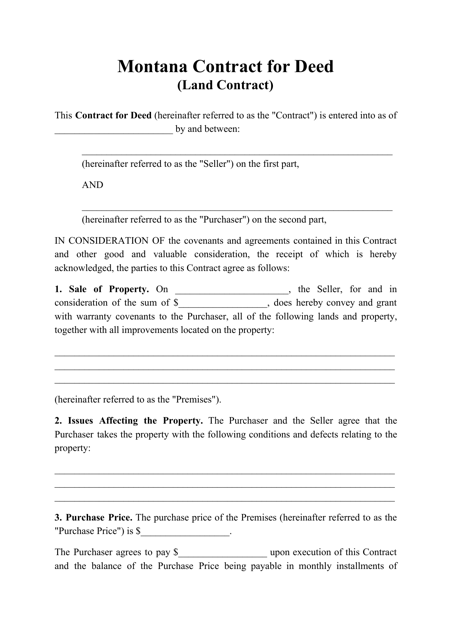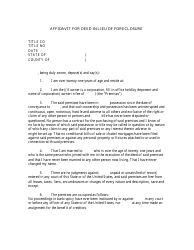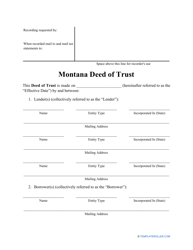Contract for Deed (Land Contract) - Montana
A Contract for Deed, also known as a Land Contract in Montana, is a legal agreement used in real estate transactions. It allows a buyer to make payments to a seller over time for the purchase of a property. The buyer gains equitable interest in the property but does not receive the deed until the final payment is made.
In Montana, the contract for deed, also known as a land contract, is typically filed by the seller or their attorney with the county clerk or recorder's office.
FAQ
Q: What is a Contract for Deed?
A: A Contract for Deed, also known as a Land Contract, is a type of real estate transaction where the seller finances the purchase of the property for the buyer.
Q: How does a Contract for Deed work?
A: In a Contract for Deed, the buyer makes regular payments to the seller over an agreed-upon period of time, and the seller retains legal title to the property until the buyer completes the payment.
Q: Is a Contract for Deed common in Montana?
A: Yes, Contracts for Deed are relatively common in Montana, especially for rural properties or when traditional financing options are limited.
Q: What are the advantages of a Contract for Deed?
A: Some advantages of a Contract for Deed include flexibility in financing, potential for lower down payment requirements, and the ability to purchase a property without traditional bank financing.
Q: What are the risks of a Contract for Deed?
A: Risks of a Contract for Deed include the possibility of default and losing the property, potential for higher interest rates and fees, and limited legal protections compared to traditional mortgage financing.
Q: Can a Contract for Deed be terminated?
A: Yes, a Contract for Deed can be terminated if the buyer fails to make the required payments or violates the terms of the contract. In such cases, the seller may have the right to reclaim the property.
Q: Should I consult a real estate attorney before signing a Contract for Deed?
A: Yes, it is advisable to consult a real estate attorney before signing a Contract for Deed to fully understand the legal implications and ensure that your interests are protected.





























